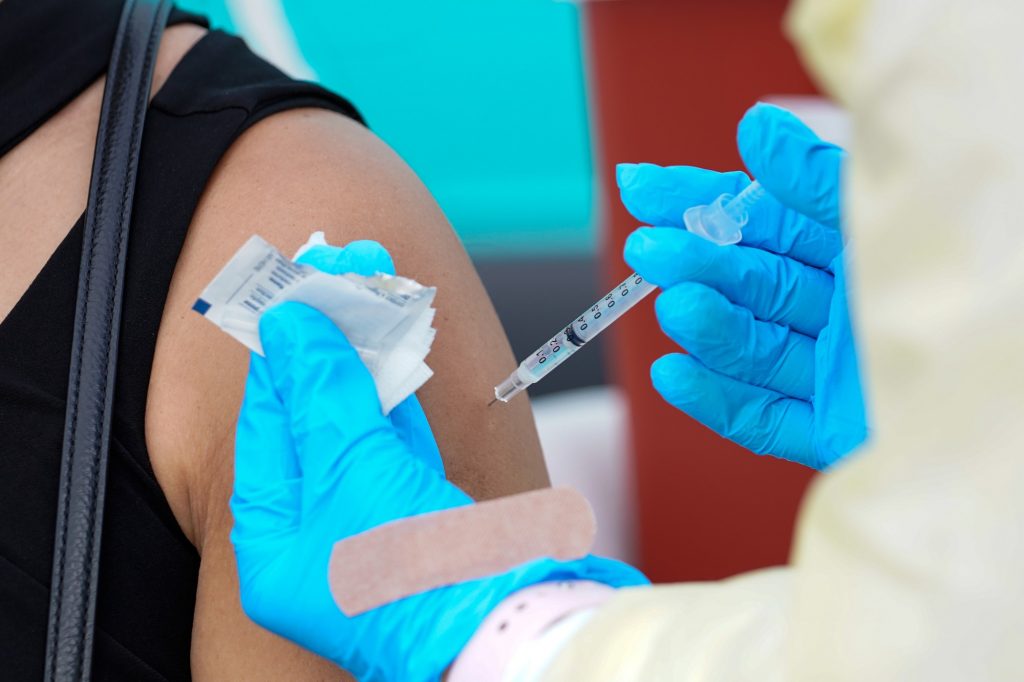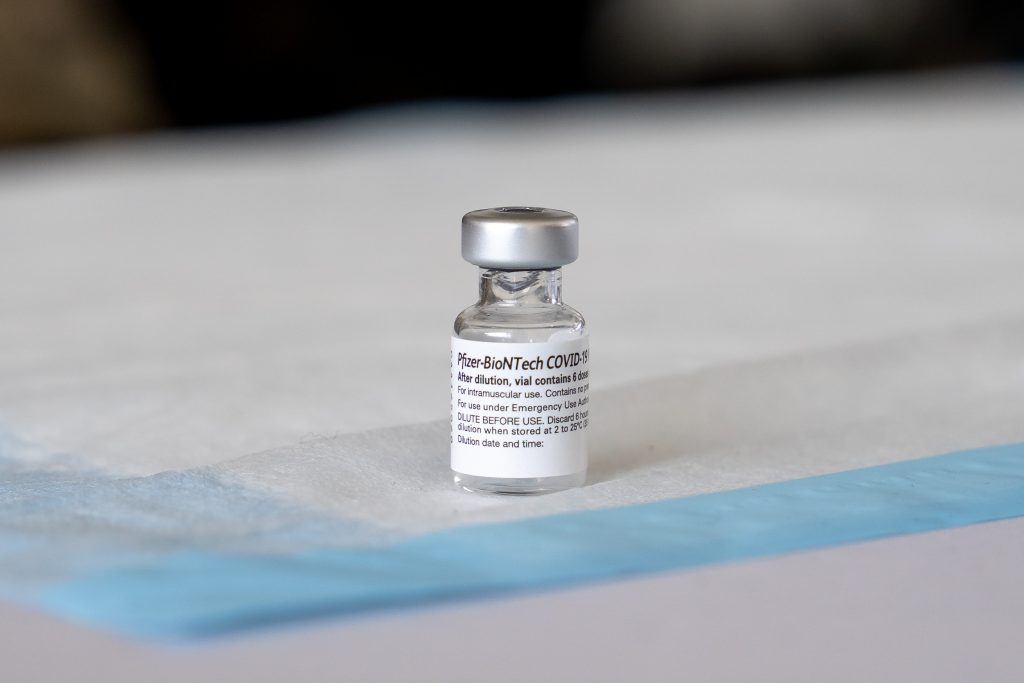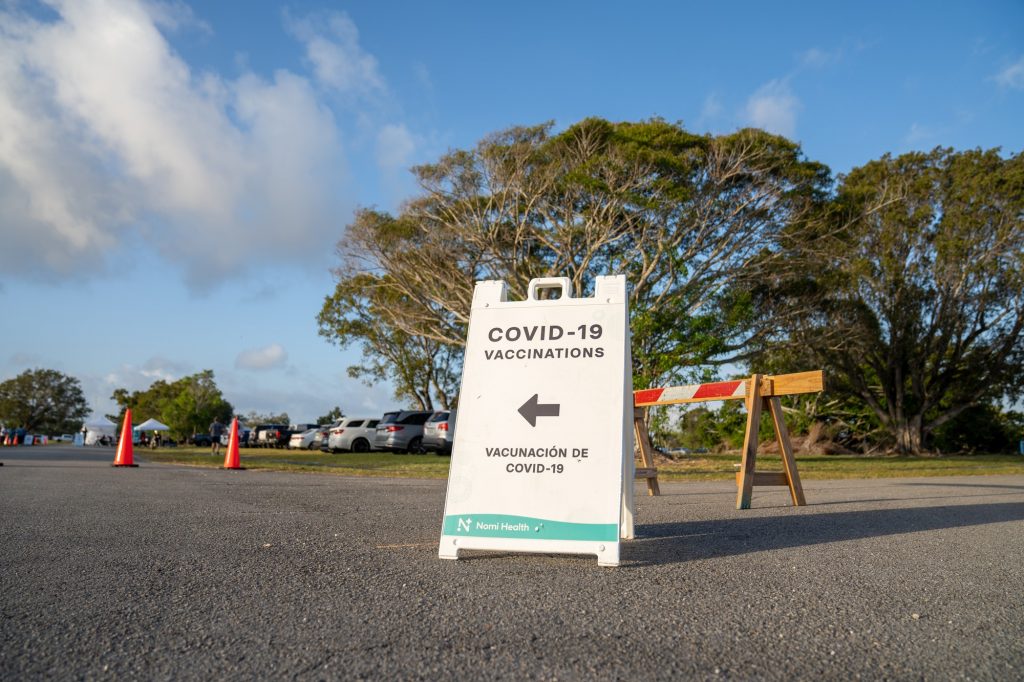

More than 200 universities are requiring their students – and in some instances, faculty and staff – to be vaccinated against COVID-19 for the fall semester.
Although the University of Miami has not yet announced if it will follow suit, UM President Julio Frenk said by the end of May that UM will provide more guidance about “a safe return in the fall.”
In an April 30 message to the campus community, Frenk stressed the importance and value of vaccinations.
“The more of us who are vaccinated, the faster we will get beyond the challenges of COVID and onto the better normal we are helping to build,” Frenk said.
Broadcast journalism major Maya Broadwater said she would endorse a requirement for students to be vaccinated.
“If all students get vaccinated, the chances of us being safer and happier at school are much higher,” Broadwater said.
Other students said they would be OK with a mandatory vaccination policy with exceptions for students to opt out for medical or religious reasons.
“I would like to see vaccines mandatory in the fall,” said Jacob Leader, a sophomore industrial engineering major. “If the university’s true goal is to keep students safe and prevent them from getting sick, they should require vaccinations, but I also understand that some students would likely prefer not to get vaccinated. It will be interesting to see what the school ends up doing.”
Rutgers was the first U.S. university to make COVID-19 vaccinations a requirement for students enrolled in the 2021 fall semester. The university, located in New Brunswick, New Jersey, with 71,000 students, made the announcement in March.
In early April, Nova Southeastern University announced that its 21,000 students would need to be vaccinated by Aug. 1 for the start of the Aug. 23 fall semester. In a May 5 announcement, NSU President George L. Hanbury II said that due to a new Florida law, NSU is unable to require vaccinations for students, faculty, and staff, but “…are striving for a high voluntary vaccination rate for the NSU community to enable NSU’s campuses to return to normalcy this fall.” NSU was the first school in the country to make COVID-19 vaccinations mandatory for its faculty and staff.
On May 3, Governor DeSantis signed Senate Bill 2006, alongside executive orders 21-101 and 21-102. “In Florida, your personal choice regarding vaccinations will be protected and no business or government entity will be able to deny you services based on your decision,” said DeSantis, in a news release from the governor’s office.

Dr. Roy Weiss, the university’s chief medical officer for COVID-19, said that it has not been determined whether UM faculty will be required to be vaccinated to teach in-person for the fall semester.
Mandatory vaccinations aside, UM had prepared for large-scale vaccine distribution for faculty, staff, students and its U-Health patients. The vaccines the university receives are distributed through the state of Florida and have been administered according to the state’s eligibility guidelines.
Beginning in December, the university began its COVID-19 vaccination program, which included allocations for older faculty members. But a month later, the supplies from the state dwindled, limiting the university’s capacity to immunize younger faculty members, staff and students. At that time, Weiss encouraged anyone who could get a vaccine elsewhere in the community to do so. “There are multiple local sites where you may be able to get vaccinated sooner,” he said.
Faculty and students who were eager to get vaccinated, prior to becoming eligible through the university, scoured websites to identify alternatives, such as pop-up sites and appointments through pharmacies and health agencies.
John Mezias, an associate professor in the Miami Herbert Business School, was one of the faculty members who repeatedly “got up early” searching for vaccination sites in March.
“The state of Florida has really tied the hands of the administration,” said Mezias, who used multiple computers to secure a vaccination appointment through a local pharmacy. He complimented the university for its efforts to provide vaccinations.
“The university, given the circumstances, is trying to do the best it can for the faculty and staff,” Mezias said.
As of April 5, individuals 18 years of age and older became eligible to receive the COVID-19 vaccine after the state lifted additional age restrictions. Weiss announced in the April 9 edition of the COVID-19 Health and Wellness Information Newsletter that vaccine availability from the state was increasing and a limited quantity of vaccines was being made available to students starting April 12.

With more students gaining access to the vaccine, some say that they have newfound hope for a brighter future at the U.
“I was so excited,” said Karan Prasad, a junior exercise physiology major. “Right when I heard that I was eligible, I made sure I got the vaccine. I was ready to get it. It was time.”
According to Prasad, having access to the vaccine makes students more comfortable.
“When I went to get my vaccine, that weekend it felt like something changed,” said Prasad, who received his second dose of the Moderna vaccine on April 2. “I feel much more comfortable regarding COVID. I feel much more comfortable in the dining halls because that’s where we take our masks off to eat. I feel more comfortable at the gym because everyone is in close quarters.”
Frenk acknowledges students’ desires to have a sense of normalcy.
“Understanding where we are with respect to vaccination is essential to planning for the fall,” Frenk said in his latest newsletter. “We all want to resume many of the activities we have missed during the past 14 months.”
Freshman Sophie Himmelfarb, a communications major, said she longs for a post-COVID campus.
“I really hope to have a more normal college experience next fall,” Himmelfarb said. “If all students need to be fully vaccinated to do that, I am all for it.”
Isabelle Eisenberg and Hadieh Zolfaghari contributed to this report.






